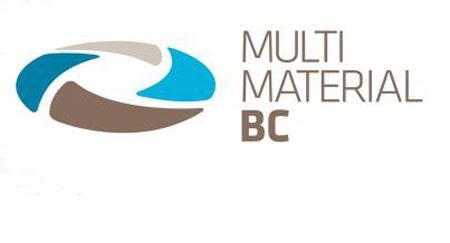There are less than two weeks before a new recycling effort is set to begin and the Regional District of Fraser-Fort George hasn't come to an agreement over what to do about those residents the provincial program is leaving out in the cold.
As of May 19, producers of packaging and printed paper are responsible for the collection of their materials.
Multi-Material B.C.(MMBC), the non-profit organization charged with representing businesses and producers, is bringing a curbside recycling collection service to single-family homes within the Prince George municipal boundary in September.
But for the rest of the regional district, recycling services will have to be handled by the local government, as there are currently no provisions for smaller communities that didn't sign on with last year's offer to act as a collector for MMBC.
Last month, plans for the region came to a standstill when the board of directors postponed a decision on whether to extend their current recycling services contract until the May 15 meeting.
The RDFFG's contract with Cascades Recovery Inc. expires May 31 and staff recommended adding an extra year to ensure rural residents would still have recycling service. Other options include letting the contract run out at the end of the month, or extending it only until September when curbside collection begins in Prince George.
"It makes me wonder how seriously city councillors take recycling," wrote Terry Burgess, Area G director and chair of the regional district's environment and parks standing committee, in a letter printed in the May 2 edition of the Prince George Free Press.
City representatives on the regional district board were taken aback by the letter.
Burgess' letter referred to an April 17 meeting where city representatives spoke in favour of not extending the contract past the end of May, a move that would eliminate the recycling drop-off bins throughout the region.
"This is concerning because I don't think this paints an accurate picture of the inequities of the MMBC program," said Mayor Shari Green. "MMBC is taking it away because they're creating haves and have-nots around the province, which was not I think the original intention of the program."
MMBC has said it's reached collection agreements with 67 local governments, 13 First Nations and 90 private companies to provide recycling services for roughly 1.25 million households in 88 B.C. communities.
But that leaves two thirds of the province still paying for recycling services that the government has said is no longer the taxpayer's responsibility, said Coun. Cameron Stolz, who chaired the regional district's sub-committee examining curbside recycling collection in the city and other member municipalities (Mackenzie, McBride and Valemount).
"Right now, the Lower Mainland doesn't mind the carbon tax so much because they don't heat their homes. Up here, we heat our homes six months of the year. So why should the south benefit and the north not from a program we all support and all stand behind?" said Stolz.
Producers are charged with recovering 75 per cent of the packaging and printed paper that goes into the marketplace.
"The challenge is MMBC has chosen not to follow the spirit of the legislation but has instead decided to follow the letter of the legislation, which means they have focused mainly on the high-population density areas," said Stolz.
In order to have the legislation changed to adjust MMBC's mandate and make sure recycling is available to every community in the province, there needs to be political pressure, Stolz added, saying MMBC is playing "divide and conquer."
"So once again Prince George is at the vanguard, saying this is not acceptable. There's 67 communities currently receiving recycling services from MMBC compared to 189 municipalities, local governments and regional districts in the province," he said. "We want the rest of the communities in our province included in the recycling mandate. Just because we live in a rural community does not mean we do not support recycling and I find it offensive that MMBC would roll out a program and completely ignore two thirds of the province."
What the city representatives on the board are trying to get across is a need to push back against MMBC to say that the program doesn't work for everyone, said Green, adding that they want the right people to pay for it, as opposed to taxing residents through their utility bills as well as at the till.
"And if we were to just blanket accept the continuation of paying for private hauling and the recycling program that exists today, then in effect we're throwing our hands up and accepting MMBC walking away from the region," said Green. "We want MMBC responsible for the recycling program in the region and we're giving them a pass if we let them off the hook."
MMBC isn't about to focus its energies on the outlying areas when it costs more to pick up less material, said Burgess.
"After September why would the province worry about the regional district?" he asked. "The city has 1,200 tonnes of recyclables and ours is 300 tonnes. The city's four times more significant than us."
But the city rejected the MMBC plan just like the regional district and each member municipality did, said Green.
"Of course, no one in the city of Prince George wants to see recycled materials ending up in the landfill," Green said. "It's not appropriate, it's never been something we've been supportive of."
Extending the regional district's current recycling contract with Cascades doesn't give MMBC an incentive to "get back to the table and design a better program for everyone in British Columbia," she added.
"But abdicating and giving MMBC a free pass at the expense of the taxpayer in this region isn't acceptable either, so we have to take a stand... How many more times does rural British Columbia have to pay for the benefit of the province?"



